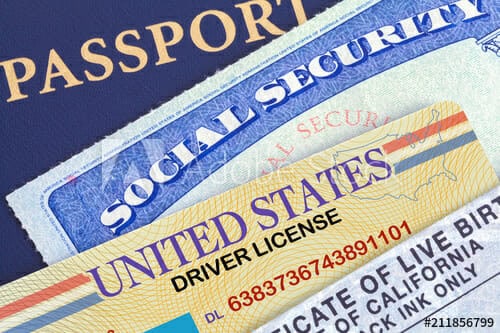Virginia Driver’s License Reinstatement
******This Bill passed the Virginia Legislature and will take effect on July 1, 2019. For information on Virginia driver’s license reinstatement and how you can get your driver’s license reinstated, read our article here.
On Tuesday, March 26th, 2019, Virginia’s Governor announced a proposed budget amendment which would repeal the court debt-related driver’s license suspension law currently in effect in Virginia. Earlier during this legislative session, this bill (initially proposed by Senator Stanley) passed through the Senate but stalled in a House subcommittee. The proposed budget amendment would: 1) restore the driver’s licenses of over 600,000 Virginians and 2) end Virginia’s self-defeating suspending of driver’s licenses for unpaid court debt. If the amendment passes, the change could affect more than 600,000 people in the Commonwealth, who have had their licenses revoked for nonpayment of court debt and fees.
A Washington Post analysis earlier this year found that more than 7 million people nationwide may have had their driver’s licenses suspended for failure to pay court or administrative debt. Advocates of the amendment say this practice unfairly punishes the poor. A Virginia Department of Motor Vehicles spokesperson said 647,517 drivers had their licenses suspended as of late 2016 for failure to pay fines and costs. Comparatively, Maryland suspended 48,508 licenses, and the District suspended 3,300 for the same time period. The Commonwealth’s Department of Planning and Budget said about 276,000 licenses were suspended in 2017 alone.
Driver’s license suspensions have been criticized by anti-poverty advocates since a federal investigation revealed that law enforcement frequently used fines to raise revenue for state and local governments. While suspensions can keep unsafe drivers off the road, they also can prevent people who haven’t committed serious crimes from working, or getting their children to school and getting out of debt.
Help for Struggling Former Inmates
In 2017, the Legal Aid Justice Center, which is based in Virginia, filed a class-action lawsuit claiming that the Commonwealth’s suspension of driver’s licenses is an “unconstitutional scheme.” The Legal Aid Justice Center began looking at driver’s license suspensions after finding that, even with a lawyer, the system was “too complex and too rigid” for poor people to pay their debts and get their licenses back.
While critics of the license suspension concede that driving is a privilege, they also argue “. . . at the same time, “if you’re a single mom with five kids trying to get on your feet, it’s a necessity.” Critics of the policy argue that the policy is overly harsh and that fighting for appeal is really about “basic human dignity — the right to survive and take care of your family.”
Facts and Implications
Jail administrators across the country have been studying the debt-related license suspensions. Close to home, the Superintendent of the Albemarle County Regional Jail in Charlottesville, evaluated what was driving up jail population numbers after the Albemarle County Jail became overcrowded. The Superintendent’s evaluation revealed that driving on a suspended license was one of the top charges inmates faced. Speaking about the results of the study, the Superintendent commented, “we couldn’t believe it,” he said. “We thought there must be some mistake. It was right up there with drugs and breaking and entering.”
To help the inmates escape their debts, Superintendent Kumer set up a program in which offenders could work outside the jail picking up trash and earning $7.25 per hour to be credited toward their court debts. So far, in three years’ time, the program has resulted in more than $500,000 of court debt paid off.
Specific case studies in Virginia provide further illustration of the harsh nature of the court debt laws. In the instance of Martize Tolbert, a Charlottesville man recently released from prison, the path to regaining his driver’s license has been “an uphill climb. Tolbert lost his license in 2007 after being incarcerated. He was released in July 2016, but only regained his license in 2018. He experienced delays in getting his license back due to $10,000 in court debt and interest that accrued while he was in jail. He was finally able to get his license back after a non-profit lent him about $3,000 at 5 percent interest. “It’s hard to get out of the trouble you’re in,” Tolbert stated.
Update
This Bill passed the Virginia Legislature and will take effect on July 1, 2019. For information on how you can get your driver’s license reinstated, read our article here.
Source: Washington Post; Jennifer Jenkins; May, 2018

